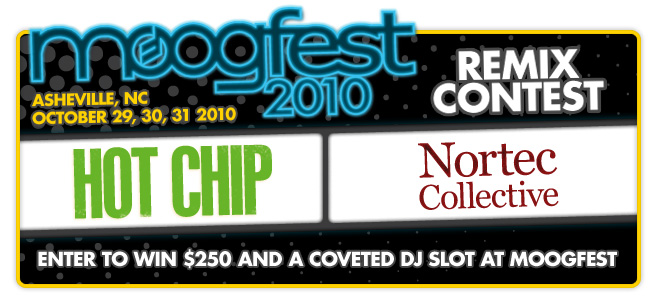For last month’s installment of What I’m Hearing, click here.
It’s that time again people…the monthly update coming from the iPod. July’s update carries 102 songs with it, with some great tunes for the middle of Summer. We’ve got some new favorites, some old classics, and a few that fall somewhere in between.
Albert Hammond, Jr, Como Te Llama?: The Strokes’ frontman comes out with his sophomore solo album that explores various rock, ska and reggae themes that might not fit into the groups’ repertoire. The songs on here are heartfelt with glimpses of his proficiency on the guitar. Lighter in fare than the work of the group, Como Te Llama? offers some idyllic music for the Summer cruise. Don’t Sleep On: “Borrowed Time,” “G Up” and “GfC” with the lilting blend of upbeat tempo and slightly melancholy guitar.
Various Artists, Delicious Vinyl, RMXXOLOGY: This album is the epitome of some MixMatchMusic in action. Following Peaches’ remix of Tone Loc’s “Wild Thing,” Delicious Vinyl decided to open its vaults to other artists who might want to delve into the iconic catalog for remixes of their own. The result is an album that blends the electronic and the hip-hop, the frenetic and the calm. Fatlip, The Pharcyde, Young MC, Masta Ace and Tone Loc are all featured here with remix work provided by Eminem, Peaches, Hot Chip and the Philippians. The result is an album that successfully takes some of the most recognizable rap songs of the late 80s and early 90s and updates them for today. Don’t Sleep On: “Runnin'” (The Pharcyde remixed by Philippians), “Sittin on Chrome” (Masta Ace remixed by Mr. Flash) and “Wild Thing” (Tone Loc remixed by Peaches).
Earlimart, Hymn and Her: The 6th album from this indie rock band out of LA produces some beautiful pieces that straddle the subdued folk sounds from Fleet Foxes while also incorporating sounds of the California sunshine and hints of Pedro. The result isn’t quite rock, it isn’t quite folk, but it is quite good. Hard to put a label on, Earlimart produces an album that is easy to listen to, yet sometimes becomes painfully sad out of nowhere. All in all, a strong effort from a band that knows what it wants to do and how it wants to do it. Don’t Sleep On: “Song For,” “Time for Yourself,” and “Cigarettes and Kerosene.”
G-Unit, Terminate on Sight: Following a disappointing debut of 50’s Curtis album last year, G-Unit returns minus Young Buck and plus Tony Yayo. While this album has been long in the making after Beg For Mercy, there’s little here that recommends it as a strong follow up to a very solid debut rap album. Production-wise, I don’t find the beats on here nearly as compelling as those on the initial album, and quite frankly, some of the lyricism seems sloppy and thrown together. In terms of a pop rap album, it delivers the necessary raps about sex and the prerequisite club bangers, but it has failed to grab me musically as other releases from the G-Unit camp have. What’s most frightening about this album is that it appears that the G-Unit members have become a bit complacent in their success, tossing out formulaic beats with standard and predictable lyrics, and never really challenging themselves to come up with something outside the cookie cutter. Don’t Sleep On: “I Don’t Want to Talk About It,” “Party Ain’t Over,” and “Chase Da Cat.”
Haiku D’Etat, Coup de Theatre: This is an older album, the second album, released in 2004 by Aceyalone, Mikah 9 and Abstract Rude. The group setting finds a more balanced tone for Aceyalone, used to far reaching concept albums, and brings Mikah 9 and Abstract into a place of more solid footing in the work with a more experienced and well-known MC. The result is a collection of strong hip-hop tracks that very possibly fell under the radar of listeners when it was released. Even though this is an album that is nearing its 5th birthday, the sounds remain fantastic to listen to, and for people looking for something great they haven’t heard, Haiku D’Etat fits the bill. Laid back beats, plaintive horns and interesting woodwind interpolations mix with the trios vocals and harmonized choruses to provide the backing for head nodding beats. Don’t Sleep On: “Built to Last,” “All Good Things,” and “Stoic Response.”
Jean Grae, Jeanius: Jean Grae, in my opinion, is perhaps the most overlooked and talented MC in the annals of hip-hop history. Originally DJ What What, Grae contributed lyrics to the Herbalizer’s album before eventually changing her name and releasing Attack of the Attacking Things in 2002. Her lyrics are not only finely crafted and full of interesting rhyme juxtapositions, but they are usually deeply personal which gives the listener a more connected feel with her work. Work for Jeanius was started and halted abruptly several years ago when the 9th Wonder backed album was leaked on the internet. Now, they are giving it the proper release, and the album finds Grae in fine form. While her lyrics can be at times touching and at other times eviscerating, her delivery is always mellow, allowing her words to speak for themselves without feeling the need to go overboard and as a result override the beats. While This Week (2004) was a bit uncharacteristic in that the production attempted to drag Grae into a more pop influenced realm of hip-hop, Jeanius finds her back among familiar settings with the decidedly underground sound that 9th brings to his albums. The result is a nicely tuned album that allows Grae to stay at home while also giving both artists the opportunity to come out of their respective boxes and meet somewhere in the middle. Don’t Sleep On: “Desparada,” “2-32’s,” and “Billy Killer.”
Lunch Time Speax, B:Compose: After hearing some of the hip-hop tracks in the update that capitalize on the more moody aspects of the musical background, I realized I had never ripped this album to mp3. This is a group I first heard in Japan in 2003. The trio brings out some excellent flow (despite the fact that I don’t speak a word of Japanese), and they do so using hip-hop music that ranges from Eastern influenced club tracks to underground hip-hop tracks complete with vinyl scratch and pop. At times jazzy and at others straight street, this album is a great foray into international hip-hop for anyone looking for a departure from the standard radio gimmes. Don’t Sleep On: “Man Track,” “Golden Harvest,” and “情景1”
Modill, Midnight Green: Originally released in 2006, Modill’s Midnight Green out of Chicago produces hip-hop that is firmly rooted in the underground sound while relying heavily on jazz influences hinted at in the alteration of Kenny Burrell’s album from 1963, Midnight Blue. The lyrics carry well crafted puns and similes that are buoyed nicely by the beats that utilize spaced out sound effects, lounge piano loops, melodic bass lines and snippets of guitar and synth to augment the straightforward beat constructs. From start to finish, this album does not disappoint, and on an overall level could be the standout of the July update. Don’t Sleep On: “Space,” “It’s Time,” and “Bigger Cents.”
Nas, Untitled: In case you missed the extreme buzz surrounding this album, Nas had originally intended it to be titled, “N*GGER.” But following an uproar from Black community leaders, a backlash from entertainment writers and a general recoil by the population, Nas backed down and left the album untitled. Although, this hasn’t tempered his reasons for the title, nor his knowledge that most people will recognize it and call it by its intended name. The first release since 2006’s Hip Hop is Dead, this album finds Nas waxing more politically than on previous outings, and in some cases sounding like a toned down pop version of Immortal Technique. Unfortunately, having built his reputation and riches on the back of modern hip-hop, some of his attacks on the industry sound hollow and insincere. It’s hard to believe attacks on the music industry and the political infrastructure when other songs have lines about him jumping on yachts and traveling the globe. Still, his penchant for carefully crafted lyricism in poetry form and some very strong beats make this a solid, though not stellar, album. Don’t Sleep On: “N.I.*.*.E.R. (The Slave and the Master),” “Y’all My Ni**as,” and “Hero” feat. Keri Hilson.
Ratatat, LP3: Ratatat’s ascension in the ranks of the music industry has been both profitable and fast. In the four years since their eponymous debut, they’ve released two remix albums, a second full studio album and now the latest, LP3. Where their debut was rock heavy, Classics delved a bit more into the reflective side of the group with a few songs featuring slower rifts and more soft spoken melodies. On their remix albums, the use of their style to back hip-hop lyrics has resulted in mash-ups somewhere between The Grey Album and Jay-Z’s work with Linkin Park. On LP3, Stroud and Mast find themselves experimenting by taking their signature sound into the realm of world music and specifically Latin influenced tunes. While the more subdued angle might make it hard for fans of the original work to be enthusiastic, the craftsmanship on these tracks is more in depth and the effort to grow and diversify their style through experimentation is clearly a sign of artists engaged in their development and understanding. Don’t Sleep On: “Mi Viejo,” “Shempi,” and “Falcon Jab.”






